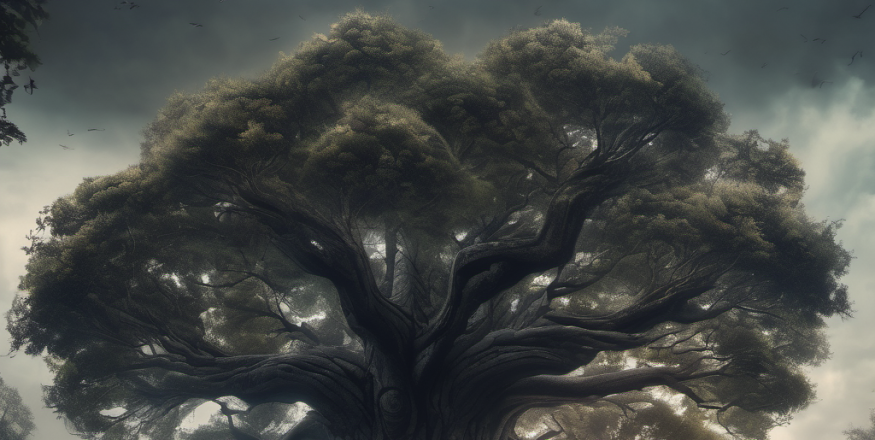Once upon a time, there was a small village hidden deep within the snow-capped mountains of Greenland. The village, isolated by its rugged terrain, remained untouched by war or invasion from neighboring cultures. However, this isolation came at a price—they had no access to new knowledge or progress. Frostveil Hollow, as it was called, existed far removed from the modern world, frozen in time.
Years ago, snow began to fall from the sky, which was not unusual for the northern reaches of the country. The villagers were accustomed to blizzards and subzero temperatures, often plunging below -20°C. For them, it was just another day in the frozen wilderness. But this time, something was different—the snow never stopped. Days turned into weeks, and weeks into months, yet the snowfall continued unabated.
The villagers shoveled endlessly, but no matter how much snow they cleared, it seemed to return the next day, even deeper and heavier. From a distance, Frostveil Hollow appeared like a scene from a winter fairy tale, blanketed in pristine white snow, with mist that danced like ethereal sprites welcoming travelers to their kingdom. Some likened it to heaven. But for the people living there, it was a hellish hell.
As the months dragged on, their situation grew dire. Food supplies dwindled. The animals starved, unable to graze on the snow-buried land. Soon, they too began to die. The people of Frostveil Hollow watched helplessly as their world withered beneath the relentless snowfall.
The village's self-proclaimed "king" declared that the unending snow was divine punishment for the village's lack of faith. Desperately, the villagers prayed for mercy and forgiveness, but the snow continued to fall. Children and the elderly were the first to succumb to the cold, their frail bodies unable to withstand the harsh conditions. The others, instead of mourning, envied them—they had escaped this living hell.
It wasn't long before the shadow of death loomed over the entire village. Yet, what they imagined as a skeletal figure in black robes wielding a scythe was, in reality, an angel. Its wings were as white as the snow, its robe blending into the endless storm. Silently, it reached for their souls, feeding on their despair.
As more lives were lost, the king devised a desperate plan. "We must offer sacrifices to the gods!" he proclaimed. "If we are destined to die, let us offer our lives in exchange for salvation." The villagers, terrified and hopeless, followed their leader's command, not because they believed in his idea, but because they had no other options. They were willing to try anything to end their suffering.
The king began with his children. He plunged a blade into the heart of his eldest son, believing the gods would accept the sacrifice. But nothing happened. His wife and the rest of the children looked in horror, afraid of who would be next. The king, undeterred, turned to his second child and offered him up in the same brutal manner, only to be met with the same silence from the heavens. Frantic, his eyes wild with desperation, the king roared to his followers, "Bring me every child and grown man and woman in the village!"
Madness gripped him fully now, twisting his mind to believe that more lives—piled higher and higher—would somehow appease the gods. And so, many were slaughtered in vain, their deaths adding only to the village's despair. Women and children watched in horror as the people they loved were butchered before their eyes, their pleas drowned out by the storm and the king's insanity.
Crimson blood stained the snow, and there, at the heart of the carnage, stood the king—soaked in the blood of his people, separated from them by his delusion. The villagers trembled in fear, unsure which fate was worse: dying at the hands of their once-trusted king or slowly succumbing to the endless, suffocating snow.
Amid the chaos, a small family was facing their battle. A woman labored through childbirth in the heart of the storm, her pain mixing with the howling winds. The father, trembling with fear, and the mother, groaning in agony, shared a single thought: Let this child be born dead. They could not bear the idea of their baby being born into this frozen wasteland, only to be sacrificed in a senseless ritual.
After hours of painful labor, the baby finally arrived—a girl. Though they had wished for a stillborn, the sight of their newborn daughter melted their despair. For the first time in months, they smiled. They named her Nix.
The joy was short-lived, however, as Nix began to cry. Her first wails echoed through the storm, but something extraordinary happened—the snow stopped...
80Please respect copyright.PENANAN6KcanhY5P






















